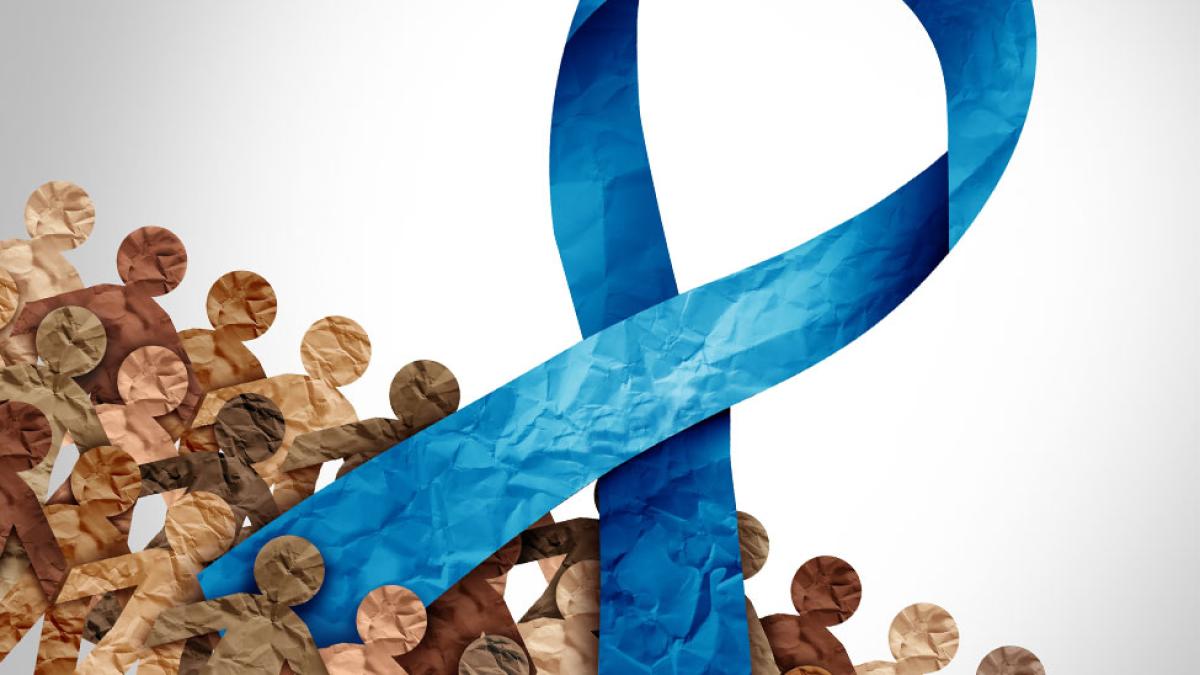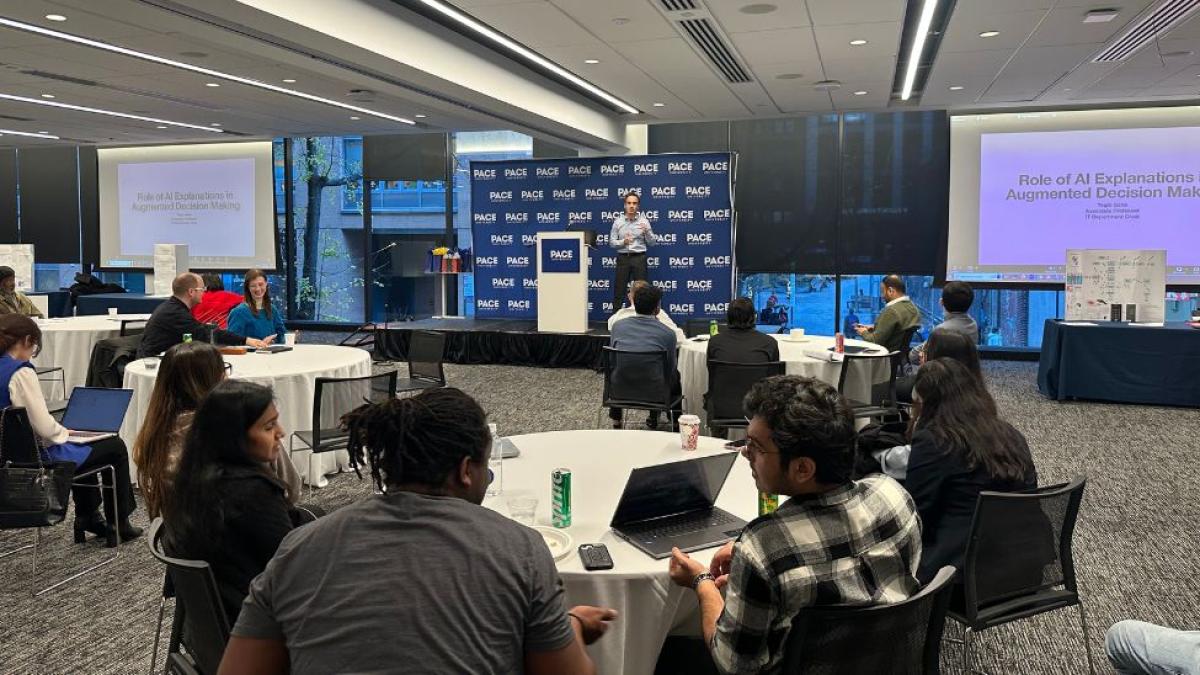
Pace "Get to Know You" Spotlight: Interview with Nick Carrozza, newly appointed Staff Representative for our Staff Councils
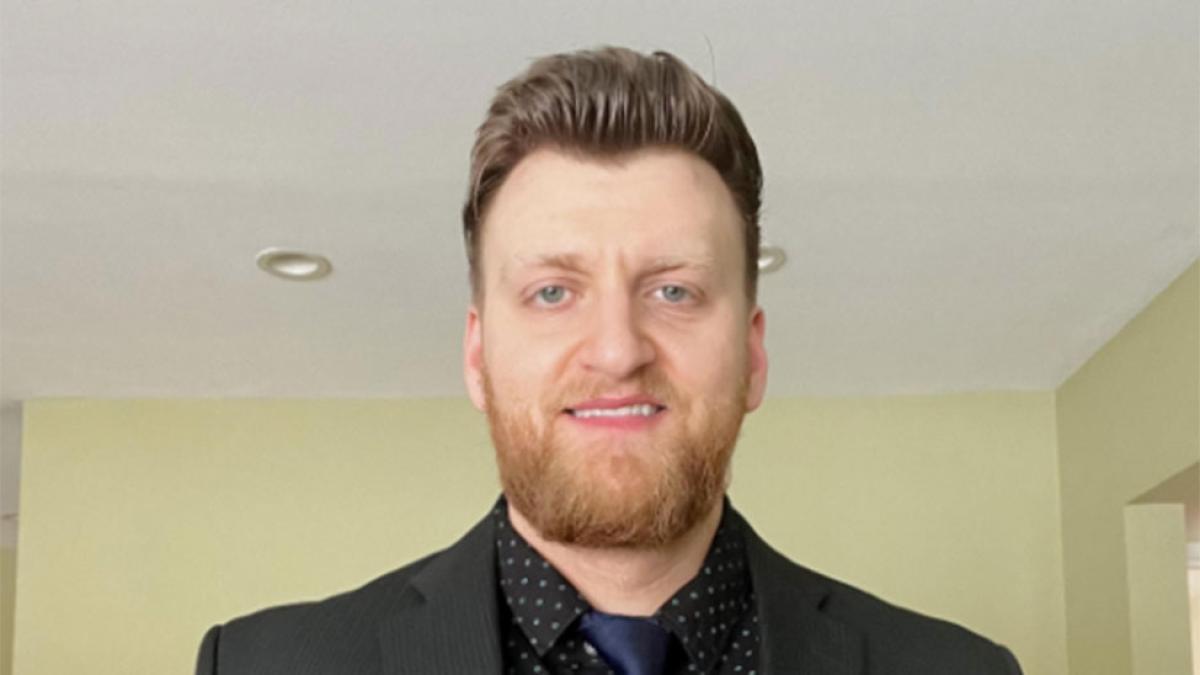

When did you start at Pace (PT then FT dates)? What attracted you to Pace?
I began working at Pace in 2018 when I was hired as a part-time staff member with the Athletics department in the Goldstein Fitness Center. I was pursuing a career in IT and was working full-time at New York Botanical Garden. I was thrilled when Pace onboarded me to a new role within Information Technology Services full time in 2021.
What has had the greatest impact on your career at Pace so far?
Perhaps what has had the greatest impact, as well as what has been most rewarding, is the opportunity to collaborate with dedicated staff from multiple University areas within my role in ITS. This includes ITS leadership who onboarded and embraced me with my role the past three and half years. I have been privileged to help lead the implementation and development of CRM Advise and OnTrack at the University within ITS, two critical applications to assist staff with student success. Working with and learning from others has contributed greatly to this.
What impact do you hope to make on the Pace community, as Staff Representative?
Starting with my part-time role with Athletics in 2018, I became immediately immersed in the Pace community. I hope that serving as Staff Representative will afford me the opportunity to support the culture of Pace, with an emphasis on giving back and helping others. I hope to contribute to the success of the staff council with respect to this.
Do you have advice for new Pace employees to help them feel not only more confident in their position, but also more engaged overall with our Pace community? If so, what is your advice?
My experiences have taught me that confidence can be fostered through the accumulation of small successes that, over time, become a much larger victory. The ability to reframe any given failure as an opportunity to learn or try something new is also critical to sustainable confidence in anything. I believe that a continuous effort to bring your best self each individual day contributes to this and naturally helps others in your community be enabled to do the same.
Is there a book that has had a meaningful influence on you, personally and/or professionally?
I recommend the book T-Minus AI by Michael Kaanan which has provided an excellent context on both the past development and the present landscape of AI in our daily lives.
Do you have a favorite quote that you would like to share?
“It’s the little details that are vital. Little things make big things happen” – John Wooden
What do you enjoy doing in your free time to relax?
I really enjoy reading nonfiction and watching sports.
What would be your ultimate getaway vacation destination?
I like nature so definitely somewhere with a nice outdoor view.
Press Release: Pace University Art Gallery Presents Flux, a Tribute to Retiring Faculty Artists
Pace University Art Gallery is pleased to present Flux: Barbara Friedman, Linda Herritt, and Will Pappenheimer, an exhibition showcasing the work of three distinguished contemporary artists and longtime faculty members in Pace’s Art Department as they prepare to retire at the end of the Spring 2025 semester. On view from February 7 to March 22, 2025, the exhibition will open with a free public reception on Friday, February 7, from 5:00 p.m. to 8:00 p.m.

Exhibition showcases the work and legacy of Barbara Friedman, Linda Herritt, and Will Pappenheimer
Pace University Art Gallery is pleased to present Flux: Barbara Friedman, Linda Herritt, and Will Pappenheimer, an exhibition showcasing the work of three distinguished contemporary artists and longtime faculty members in Pace’s Art Department as they prepare to retire at the end of the Spring 2025 semester. On view from February 7 to March 22, 2025, the exhibition will open with a free public reception on Friday, February 7, from 5:00 p.m. to 8:00 p.m.
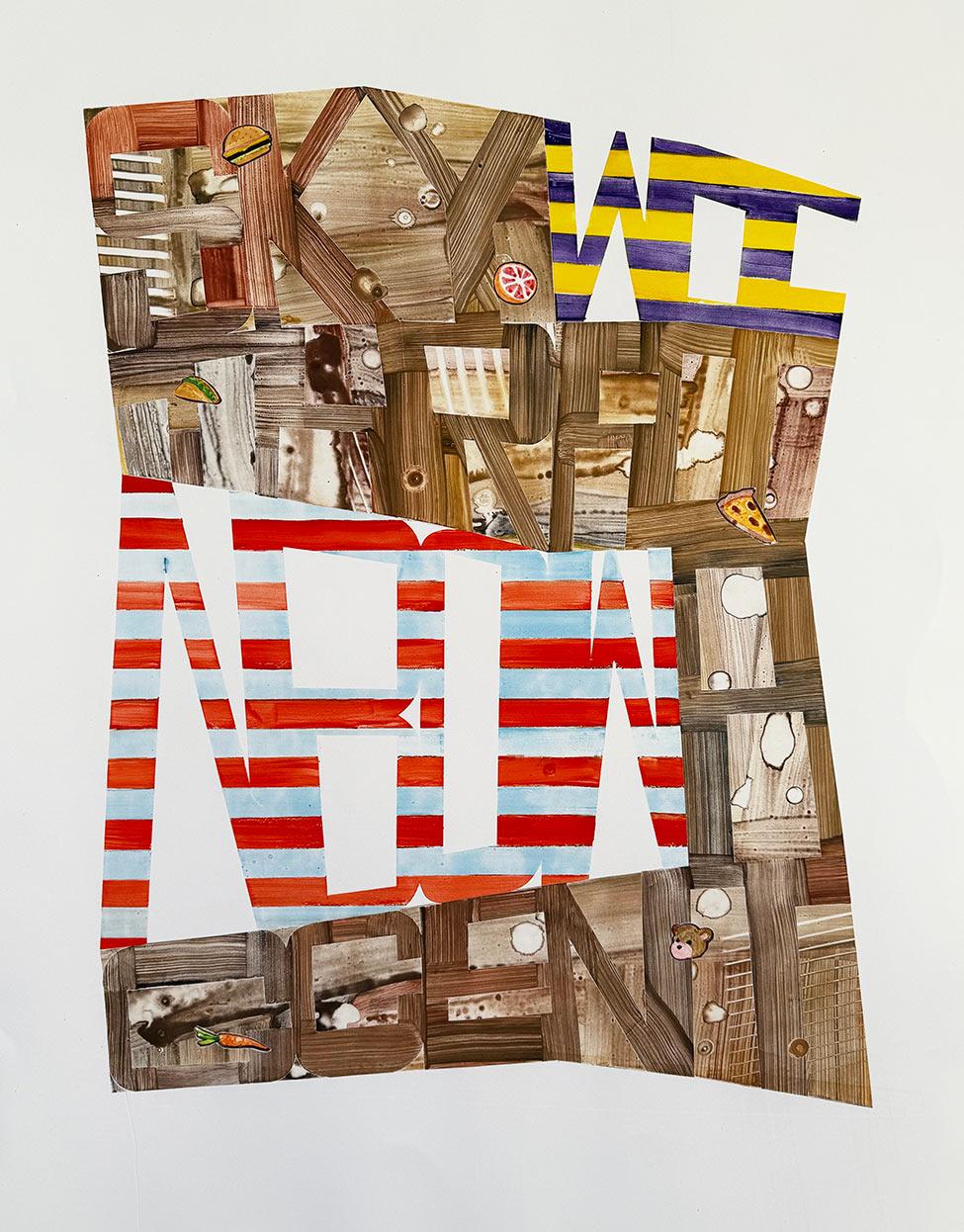
Flux celebrates their lasting impact on the university and their artistic contributions. The exhibition title reflects both the shift in the artists’ careers—from the classroom to the studio—and a thematic connection that links their distinct artistic practices. Barbara Friedman presents oil paintings, including three new large-scale works created specifically for this show, capturing glimpses of figuration emerging from sweeping layers of poured paint. Linda Herritt, explores text as both form and concept through prints and a site-specific wall installation, pushing beyond legibility. Will Pappenheimer’s incorporates video, augmented reality, and digital prints generated by AI text prompts, all investigating a devastated post-human environment.
Throughout their careers as artists and educators, they have each generously guided the development of new artists. Brenda McManus, chair of the Art Department, said, “Barbara, Linda, and Will’s unwavering dedication, passion for teaching, and exceptional leadership have left an indelible mark on our community. Their retirements will be deeply felt, as they have not only shaped the academic and artistic growth of our students but have also profoundly enriched the department with their vision, mentorship, and commitment."
Sarah Cunningham, director of the Pace University Art Gallery, added, “While we will certainly miss them as cherished colleagues, we're also extremely excited to see the incredible new art they'll create with more time in the studio. This show is just a glimpse of the amazing work to come!”
As part of the exhibition, each artist will present a public talk about their artistic practice: Linda Herritt will speak on Monday, February 10, at 11:00 a.m., Barbara Friedman on Thursday, February 20, at 12:30 p.m., and Will Pappenheimer on Monday, March 3, at 1:30 p.m. All exhibitions and events at Pace University Art Gallery are free and open to the public.
Pace University Art Gallery is located at 41 Park Row in Lower Manhattan. Regular gallery hours are Tuesday through Saturday from 12:30 p.m. to 4:30 p.m., with extended hours on Thursdays until 7:00 p.m. Please check the gallery Instagram for the University holiday closures.
Image credits
- Barbara Friedman, Peripheral Vision, 2024–2025, oil on linen, 80” x 67”
- Linda Herritt, Rainbow Accent, 2025, watercolor monotype, 22” x 30”
- ∅ne, Will Pappenheimer, #129 Flooded and Moldy Rooms; After Takashi Murakami, 2024, framed archival inkjet print, 51.5” x 46.5” x 2”
About Pace University
Since 1906, Pace University has been transforming the lives of its diverse students—academically, professionally, and socioeconomically. With campuses in New York City and Westchester County, Pace offers bachelor, master, and doctoral degree programs to 13,600 students in its College of Health Professions, Dyson College of Arts and Sciences, Elisabeth Haub School of Law, Lubin School of Business, Sands College of Performing Arts, School of Education, and Seidenberg School of Computer Science and Information Systems.
About Dyson College of Arts and Science
Pace University’s liberal arts college, Dyson College, offers more than 50 programs, spanning the arts and humanities, natural sciences, social sciences, and pre-professional programs (including pre-medicine, pre-veterinary, and pre-law), as well as many courses that fulfill core curriculum requirements. The College offers access to numerous opportunities for internships, cooperative education and other hands-on learning experiences that complement in-class learning in preparing graduates for career and graduate/professional education choices.
About Barbara Friedman
Barbara Friedman has exhibited widely: over forty solo shows, with an exhibition opening at Frosch and Co later this month. Other solo shows include Five Myles, Ober Gallery, Sara Nightingale, CAS, Buddy Warren, BCB Art, the Painting Center; and twice at Michael Steinberg. Earlier solo exhibitions were at Art Resources Transfer, The Queens Museum, and White Columns; Carnegie-Mellon, Cleveland State, the Roanoke Museum, and the Dana Wright Gallery (San Francisco) among others. Two-person and selected group shows include The Drawing Center, Five Myles, PS1, Exit Art, Amherst College, Parrish Museum, Artists Space, SUNY Old Westbury, Octavia Gallery, Marymount Manhattan College, Studio 10, Valentine, Gerald Peters, Storefront Ten Eyck, Life on Mars, Pierogi, Amy Simon, Art in General, Queens University Cultural Festival (Belfast), Galerie am Meer (Berlin), Aldrich Museum, Printed Matter, Aljira, and the Newhouse Center of Contemporary Art in Snug Harbor. Reviews of Friedman’s work have appeared in the New York Times, The Brooklyn Rail, Forbes, Whitehot Magazine, New York Sun, Irish Times, Newsday, Art in America, ARTS Magazine, Christian Science Monitor, and Artweek. She has been awarded residencies at the Bogliasco Foundation, Yaddo (twice), Virginia Center for Creative Arts, Marie Walsh Foundation Summer Session, Pouch Cove and the Golden Foundation. Her paintings were selected for the 2007 and 2010 issues of New American Paintings, as well as for the MTA Arts in Transit Poster Project She has been a member of the Art faculty at Pace since 1983.
About Linda Herritt
Linda Herritt’s text-based installations and works on paper have been exhibited in one and two person exhibitions at the Center for Contemporary Printmaking, Connecticut; the Boiler (Pierogi), Brooklyn; Valentine Gallery, Queens; 1K Project Space, Amsterdam, The Netherlands; Pierogi, Brooklyn; the San Francisco Art Institute, California; The Frist Center for the Arts, Nashville, Tennessee; and Art&Idea, Mexico City, Mexico. She has exhibited in group shows at the Litho Werkstat, Berlin; Drawing Center, New York; Museum of Contemporary Art, Denver; Arti et Amicitiae, Amsterdam; and Galería OMR, Mexico City, among others. Fellowships include a Brooklyn Arts Fund Award (2016), a NYFA Fellowship in Printmaking/Drawing/Book Arts (2014), a Pollock-Krasner Foundation Grant, a Rockefeller Foundation Grant, and a NEA Sculpture Fellowship. She participated in the International Artist in Residence Program in Vienna, with US residencies at Yaddo, the MacDowell Colony, Art/Omi, the Marie Walsh Sharpe Foundation, and Dieu Donne. Her work has been reviewed in The New York Times, Hyperallergic, and Art in America. Recent prints will be included in a 2025 group exhibition at the Tokyo National Museum, Japan. Linda Herritt is a member of the Art faculty at Pace University, New York.
About Will Pappenheimer
Will Pappenheimer is a Brooklyn based artist working in new media, performance and installation with an interest in spatial intervention and the altered experiences of the artwork as site. His current work explores the collage of the virtual and physical worlds in the recent medium of augmented reality (AR) and “mixed reality.” He is a pioneer of AR medium and a founding member of the AR collective, Manifest.AR, formed in 2011. His projects and performances have been shown internationally at Whitney Museum of American Art, LACMA, Los Angeles; SFMOMA and bitforms in San Francisco; the Stedelijk Museum in Amsterdam; FACT, Liverpool, UK; Contemporary Istanbul Art Fair, Istanbul; Fringe Exhibitions in Los Angeles; the ICA, CyberArts Gallery and the Museum of Fine Arts in Boston; the Corcoran Gallery of Art in Washington; Xi’an Academy of Art Gallery in China; the New Museum and the 2017 Moving Image Art Fair in New York. He recently debuted a solo show of new mixed reality sculptural works at the Alpha Gallery in Boston. The artist’s works have been reviewed in the Whitney Museum curator, Christiane Paulʼs recent historical editions of “Digital Art,” a chapter of Gregory Ulmerʼs theoretical book “Electronic Monuments,” Art in America, New York Times, Hyperallergic.org, WIRED, Modern Painters, the Boston Globe, EL PAIS, Madrid, Liberation, Paris, and Art US. A documentary on his work is part of Bloomberg TV’s Art + Technology series. He teaches new media at Pace University, New York.
Pace University: Where Women in Economics Thrive
Chair and Professor Anna Shostya, PhD, Economics department at Dyson College of Arts and Sciences at Pace University, discusses how uniquely undergraduate women have succeeded in economics programs at the university.
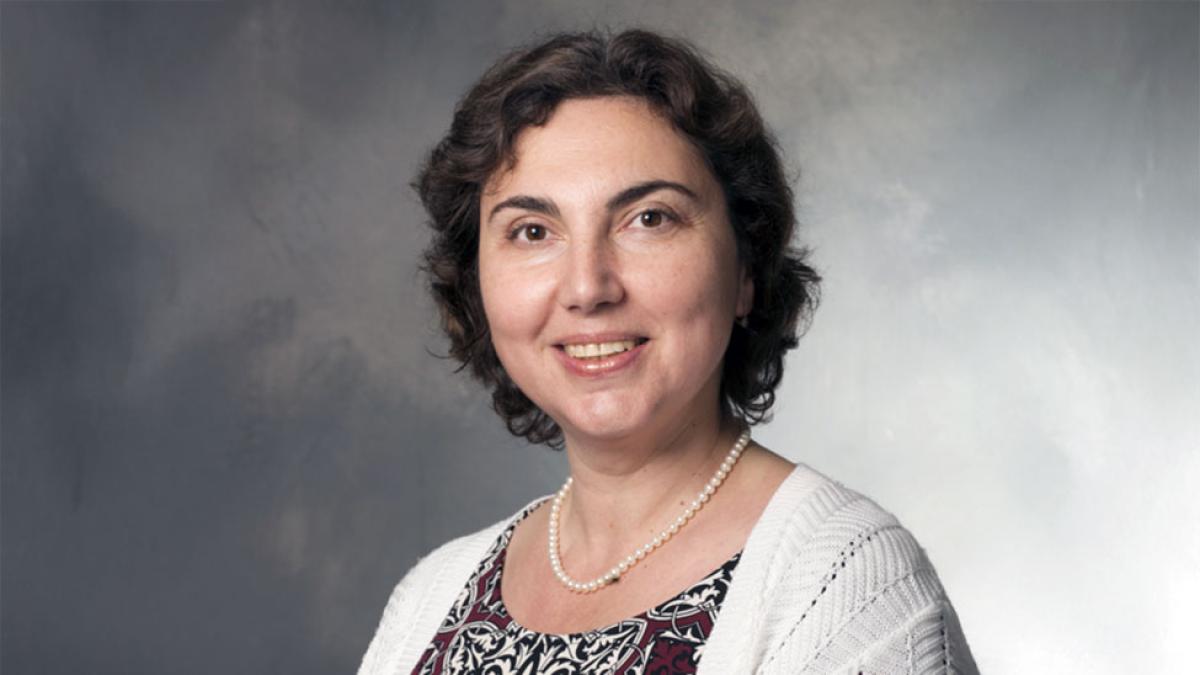
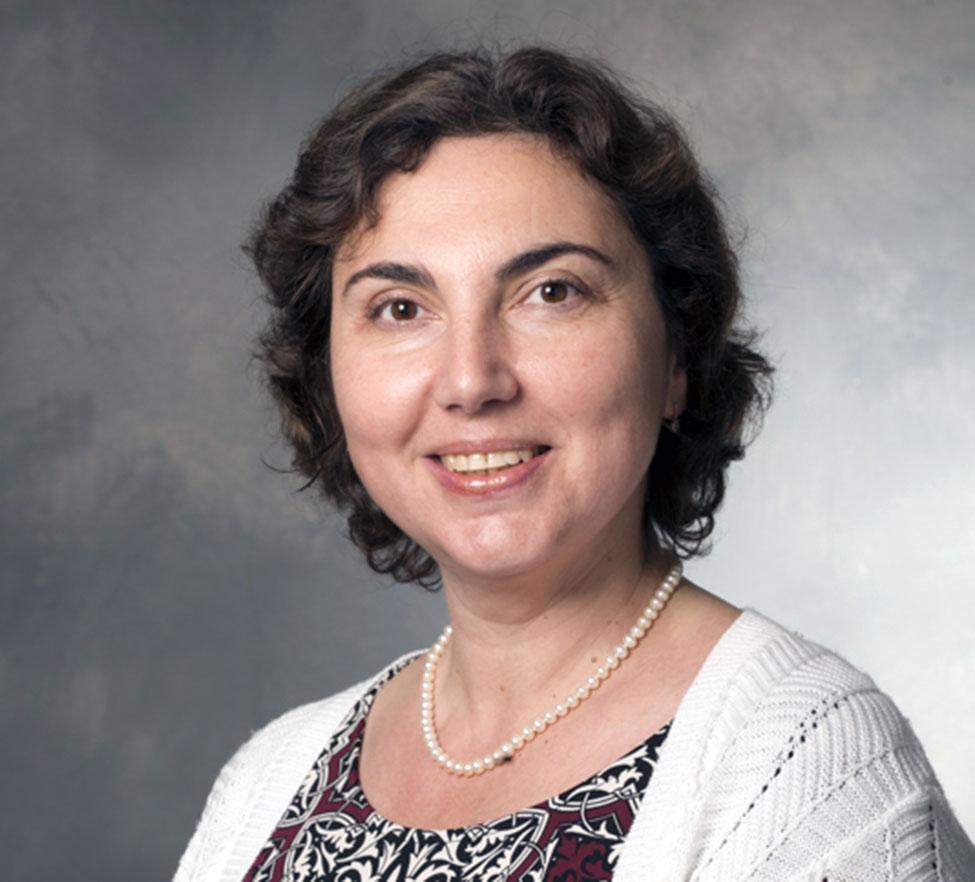
Chair and Professor Anna Shostya, PhD, Economics department at Dyson College of Arts and Sciences at Pace University, discusses how uniquely undergraduate women have succeeded in economics programs at the university.
While women comprise about half of all undergraduate students in the United States, they make up only about one-third of economics majors nationally and the number has been consistently low over the last several decades. Many reasons have been offered to explain this gender gap. Some argue that there is a lack of role-models—female professors with PhDs (less than 20% of full economics professors are women, according to the Federal Reserve Bank of St. Louis). Other studies indicate that women are generally underrepresented in STEM disciplines—the share of women in STEM fields is only about one-third. Still others argue that women are not attracted to a discipline that does not reward them with career prospects.
The solution to the gender bias in economics may be simpler than it seems: Encourage successful female students in the undergraduate programs, present successful role-models to market the field, teach economics in a more applied way, and engage more young women in undergraduate research. And the gender “equilibrium” will be restored.
This is exactly what the Economics department at Pace University does to maintain a unique “equilibrium.” So, what do we do differently?
First, Pace economics professors identify potential majors very early, in the introductory courses, and pitch economics as an exciting and applied field. Having female professors as role models (one-third of the New York City Economics faculty are female) helps.
Second, Pace University’s successful female economics alumnae, who come to talk to the freshmen, also serve as role-models. They work in a wide variety of industries, from entertainment to pharmaceutical, to finance, and typically have very successful and rewarding careers both in the private and public sectors.
Finally, the Economics department at Pace focuses heavily on undergraduate research. All three of the department’s programs (economics, business economics, and computational economics) are STEM-designated. Students learn how to use such tools as R, Python, and STATA to analyze data and produce quantitative research papers, many of which are presented at national professional conferences. Research requires commitment, patience, and an ability to work long hours— the traits that women, on average, seem to possess. This also explains the composition of the teams that participate in the College Federal Reserve Challenge, a national competition that tests students’ knowledge of monetary policy and central banking. In fact, the Pace teams that won regional and national competitions numerous times had the highest ratio of female presenters of all other teams. So did all other Pace teams that won the regional competition. The teams have been typically captained by women, too.
Overall, 54% of all Pace University’s undergraduate economics majors on the New York City campus are females, and this gender distribution has been rather stable over the last decade. The percentage of females is more than double that of males in the Computational Economics program, a new interdisciplinary offering between the Economics program at Dyson College and the Computer Science program at Pace’s Seidenberg School of Computer Science and Information Systems. Still a gender gap, but a welcomed one for a change.
Everyone in Pace University’s Economics department looks forward to seeing women in economics at Pace continue to thrive and upon graduation demonstrate their laudable knowledge and skill level in rewarding careers.
International Research for Global Impact
Sleeping sickness was nearly always fatal—until now. Learn how research done at Pace University’s Haskins Laboratories helped lead to the development of a breakthrough treatment that could eradicate the disease for good.
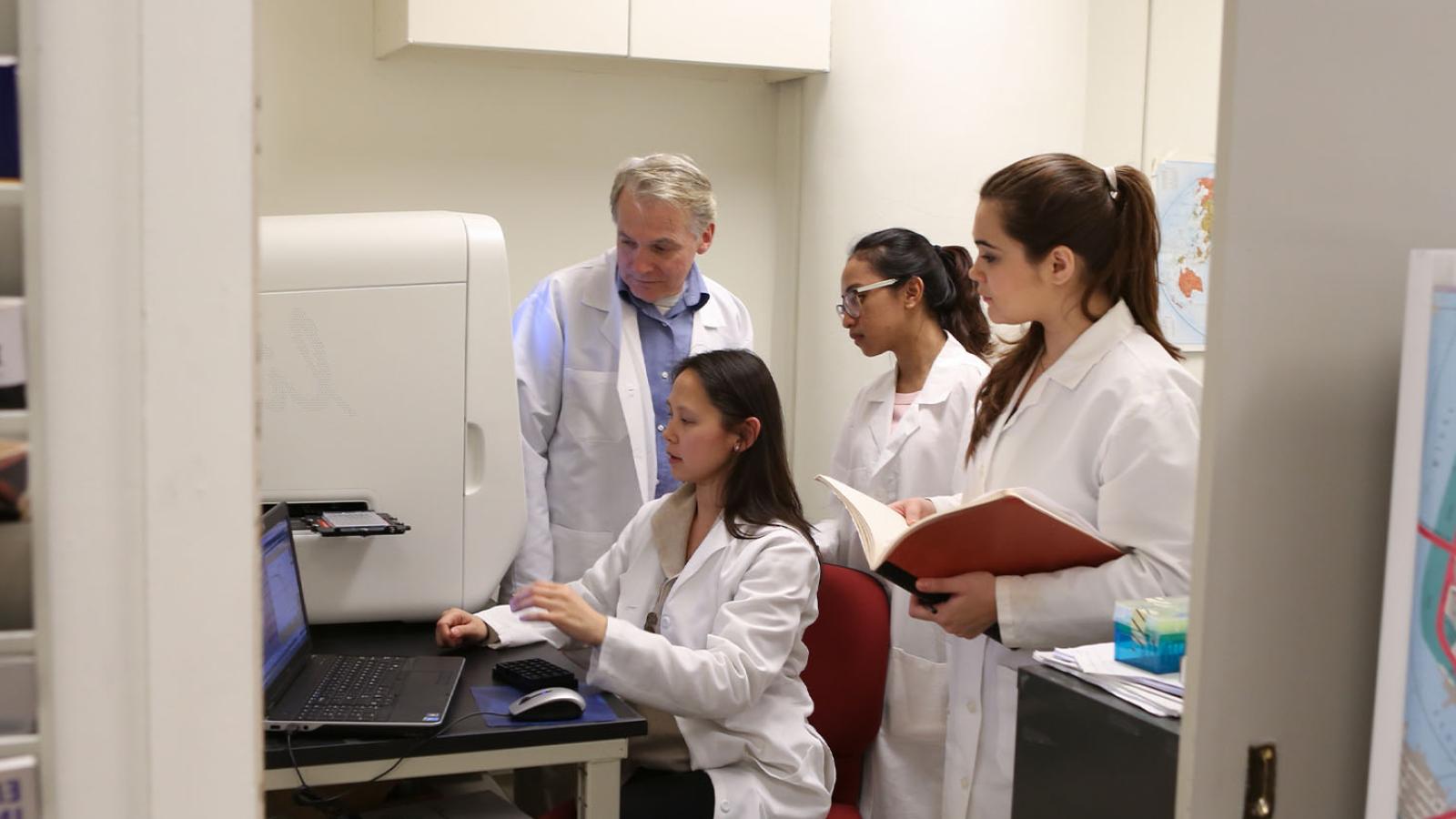
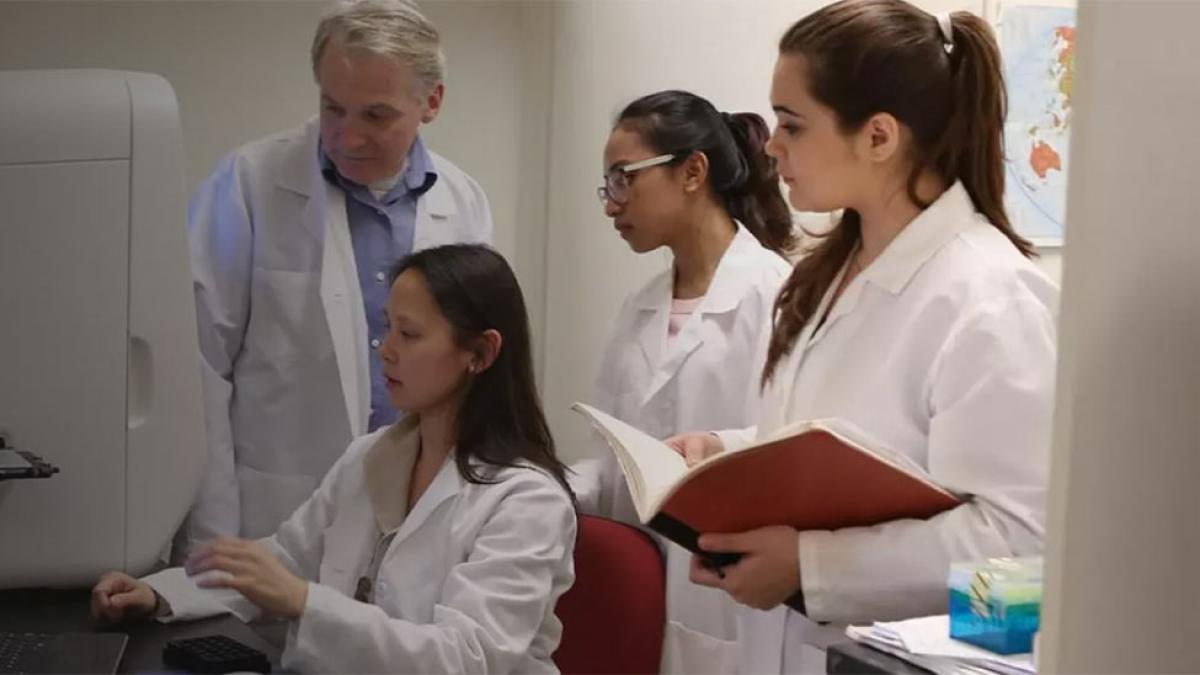
For decades, Human African Trypanosomiasis (HAT), or sleeping sickness, has devastated sub-Saharan Africa, with limited and often risky treatment options. Nearly always fatal if untreated, the disease now has a groundbreaking treatment, thanks to an international effort that included research from Pace University’s Haskins Laboratories, led by Nigel Yarlett, PhD and emeritus professor Cyrus Bacchi, PhD.
Haskins Laboratories is a scientific research center through Dyson College of Arts and Sciences on Pace’s New York City Campus. Yarlett explains, “The Haskins Labs is dedicated to exchanging ideas, fostering collaborations, and forging partnerships across the sciences.” Throughout its history, the lab has received funding from esteemed organizations such as the Bill and Melinda Gates Foundation, National Institutes of Health (NIH), World Health Organization (WHO), and more.
The Haskins Labs is dedicated to exchanging ideas, fostering collaborations, and forging partnerships across the sciences.
Nigel Yarlett, PhD, was invited to collaborate on this research by the nonprofit Drugs for Neglected Diseases (DNDi), which recognized the groundbreaking work he and Bacchi had already done in sleeping sickness research. “I was already aware of the benefits of collaborating with pharmaceutical companies,” Yarlett says, having done research for clinical treatments in the past, so it was a promising partnership.
The Lab’s role in this research was essentially to evaluate a selection of compounds to test their ability to treat the sickness. “Sleeping sickness demonstrates two stages of the infection, an initial bloodstream stage which often goes undiagnosed, followed by a central nervous system stage when the parasite breaks through the blood brain barrier,” says Yarlett. This fatal second stage, responsible for the name ‘sleeping sickness’ as it can lead to a coma. is nearly always fatal if not treated. “The Haskins Labs was uniquely placed to evaluate compounds for both disease stages,” Yarlett explains, particularly in finding a compound that could cross the blood brain barrier and treat the sickness at either stage.
The Haskins Labs was uniquely placed to evaluate compounds for both disease stages.
Yarlett and Bacchi tested more than 40 compounds before selecting just 2 or 3 to move onto further trials. This work contributed to the identification of the medication acoziborole, a single-dose treatment which has been described by some as a “dream drug”. Clinical trials show that it is effective for people at all stages of the disease and after 18 months of treatment, around 96 percent of late-stage sleeping sickness patients were parasite-free. Acoziborole is currently being reviewed by the European Medicines Agency and will hopefully be approved by 2026, with treatment beginning the following year.
This breakthrough not only offers a safer, more accessible cure but some believe it could help eradicate sleeping sickness entirely. As part of their work, Haskins Labs at Pace University was awarded Project of the Year by DNDi.
The work Haskins Lab contributed to the treatment of sleeping sickness is a testament to the lab’s pioneering research—and their impact is far from over. Current research at Haskins Laboratories is set on tackling two neglected diseases, proving once again that scientific discovery at Pace University is driving real-world solutions for those who need them most.
Read more about the groundbreaking work being done to treat sleeping sickness and learn about the research of Haskins Laboratories at Pace.
More from Pace
As the spring semester gains momentum, President Krislov reflects on the spirit of Pace—one of resilience and innovation—and invites us to come together for the 2025 State of the University Address to discuss the challenges and opportunities ahead.
Join Pace University for a two-day conference on March 3–4, 2025, focused on human trafficking and violence against women and girls. Featuring global experts, survivor testimonies, and panel discussions, this event explores strategies for prevention, intervention, and support.
The Seidenberg School of Computer Science and Information Systems finished the Fall 2024 semester in celebratory fashion, and one of the highlight events was the Seidenberg Annual Research Day.
February 2025: A Message from President Krislov
As the spring semester gains momentum, President Krislov reflects on the spirit of Pace—one of resilience and innovation—and invites us to come together for the 2025 State of the University Address to discuss the challenges and opportunities ahead.
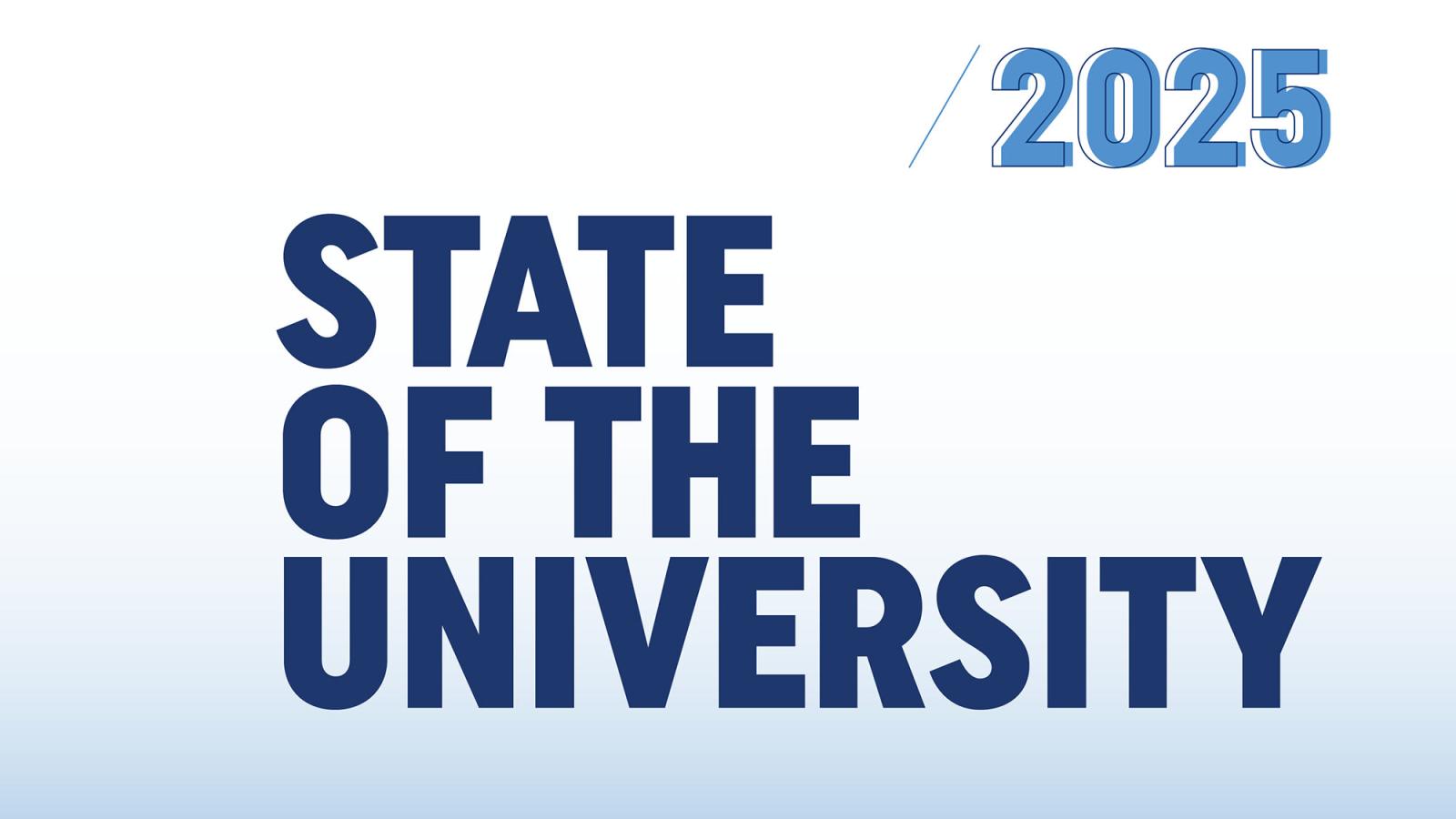
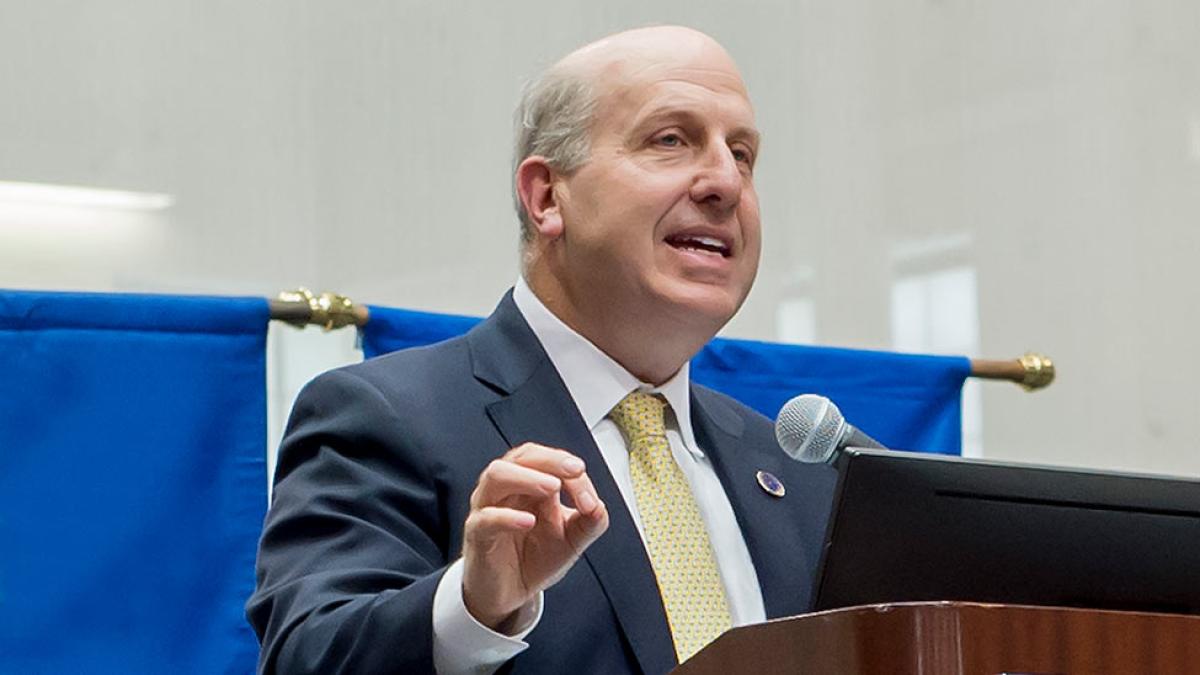
As the spring semester is now in full swing, I take this moment to reflect on the incredible energy and commitment that define Pace University. Our students, faculty, and staff continue to demonstrate resilience, innovation, and a shared dedication to our mission.
Next week, I invite you to join me for the 2025 State of the University Address on Monday, February 10, at 12:10 p.m. in the Student Center at One Pace Plaza on our New York City Campus—or tune-in online. This is an opportunity to look at the road ahead, to discuss the challenges facing higher education, and to highlight the ways the people of Pace are shaping our future.
I believe in Pace’s future because of you—the students who pursue their dreams with determination, the faculty who challenge and inspire, and the staff who work tirelessly to support our mission. Your commitment to education and innovation makes Pace what it is: a university that delivers real-life learning and extraordinary outcomes.
I hope you’ll join me for this important conversation. And as we move through the semester, keep an eye out for more details about Commencement 2025, when we’ll celebrate another extraordinary class of Pace graduates.
Additionally, I encourage you to take part in these upcoming events:
- Spring 2025 Job and Internship Fair | Friday, February 7
Connect with top employers and explore career opportunities at one of our biggest networking events of the year. - NY Fed President Williams Speech & Q&A | Tuesday, February 11
New York Federal Reserve President John C. Williams will give prepared remarks and take questions from the Pace audience. - Faculty & Staff Appreciation Night | Sunday, February 11
Faculty and staff, join us at the Goldstein Fitness Center for a night of recognition and community. During halftime, I’ll take on Chad Walker, Pace Football’s new head coach, in a free throw showdown—each basket made earns $50 for the Pace Cares fund. No RSVP needed!
I look forward to seeing you on February 10 and continuing our work together.
Sincerely,
Marvin Krislov
President, Pace University
Meet Jah Davis, Senior Director of Outreach and Opportunity
Senior Director of Outreach and Opportunity Jah Davis brings nearly a decade of experience in fostering inclusion and advocacy. A first-generation college student from Brooklyn, she’s passionate about social justice and building campus connections.

With nearly a decade of experience in higher education, Jah Davis (she/her) is dedicated to fostering inclusive campus environments and advancing diversity, equity, and inclusion (DEI) initiatives. As the Senior Director of Outreach and Opportunity, she brings expertise in institutional advocacy, civic engagement, and student-centered programming. Jah’s leadership is rooted in her own experiences as a first-generation college student from East Flatbush, Brooklyn, shaping her passion for social justice and community building. In this Q+A, she shares her vision for DEI at Pace, the initiatives she’s most excited about, and her commitment to strengthening connections across all three campuses.
Can you tell us a little about yourself and how you came to work in the Division of Opportunity and Institutional Excellence at Pace?
I’m a first-generation college student from East Flatbush, Brooklyn, a neighborhood rich in cultural diversity. Growing up in this vibrant community fostered my early appreciation for equity and inclusivity. My own experience navigating the challenges of adapting to campus life deepened my commitment to social justice and ultimately led me to pursue a career in diversity, equity, and inclusion (DEI) leadership.
With a passion for DEI and college student development, I’ve dedicated nearly a decade to higher education, working in Residential Life and DEI leadership roles at Binghamton University and Pratt Institute. Now, I’m thrilled to be at Pace University, collaborating with a dynamic DEI team and engaging with this vibrant campus community!
What is your role in the department? What does a typical workday look like?
As the Senior Director of Outreach and Opportunity, I develop and implement strategies to enhance diversity, equity, and inclusion across all three Pace campuses. My work involves collaborating with senior leadership to integrate DEI principles into university operations, designing and facilitating training programs, and reviewing policies to identify areas for improvement.
I also serve as a resource for students, staff, and faculty, providing guidance on DEI-related initiatives while representing Pace in external partnerships and advocacy efforts. The beauty of this work is that no two days are the same—each day presents new opportunities to create meaningful change and foster inclusivity within the Pace Community.
As we head deeper into the Spring 2025 semester, what excites you most about working in the Division of Opportunity and Institutional Excellence at Pace University?
I’m most excited about building relationships across all three campuses. The warm welcome I’ve received from colleagues and students has been incredible, and I’m eager to collaborate on DEI initiatives that foster belonging and connection. I’m also looking forward to learning more about the Pleasantville Campus and its surrounding communities while continuing to engage with our New York City and Haub Law campuses.
Is there a particular initiative or event that you’re especially looking forward to this semester?
Yes! I’m especially excited about the upcoming Days of ORIGIN initiative. Bringing together all three campuses for collective dialogue is a powerful opportunity—one that reinforces the importance of community and shared experiences. Now more than ever, fostering inclusive conversations and meaningful connections is essential, and I can’t wait to be part of this impactful event.
